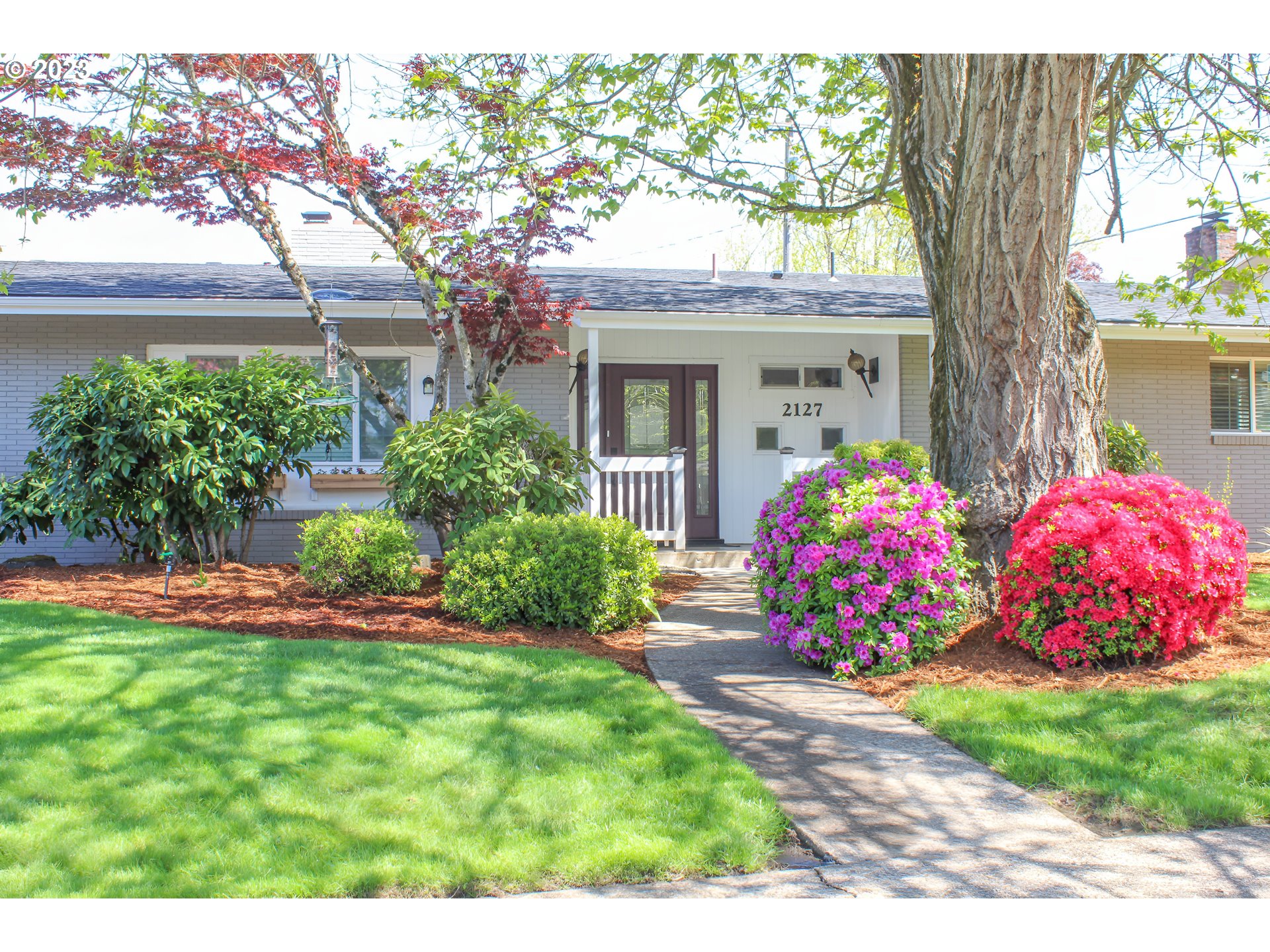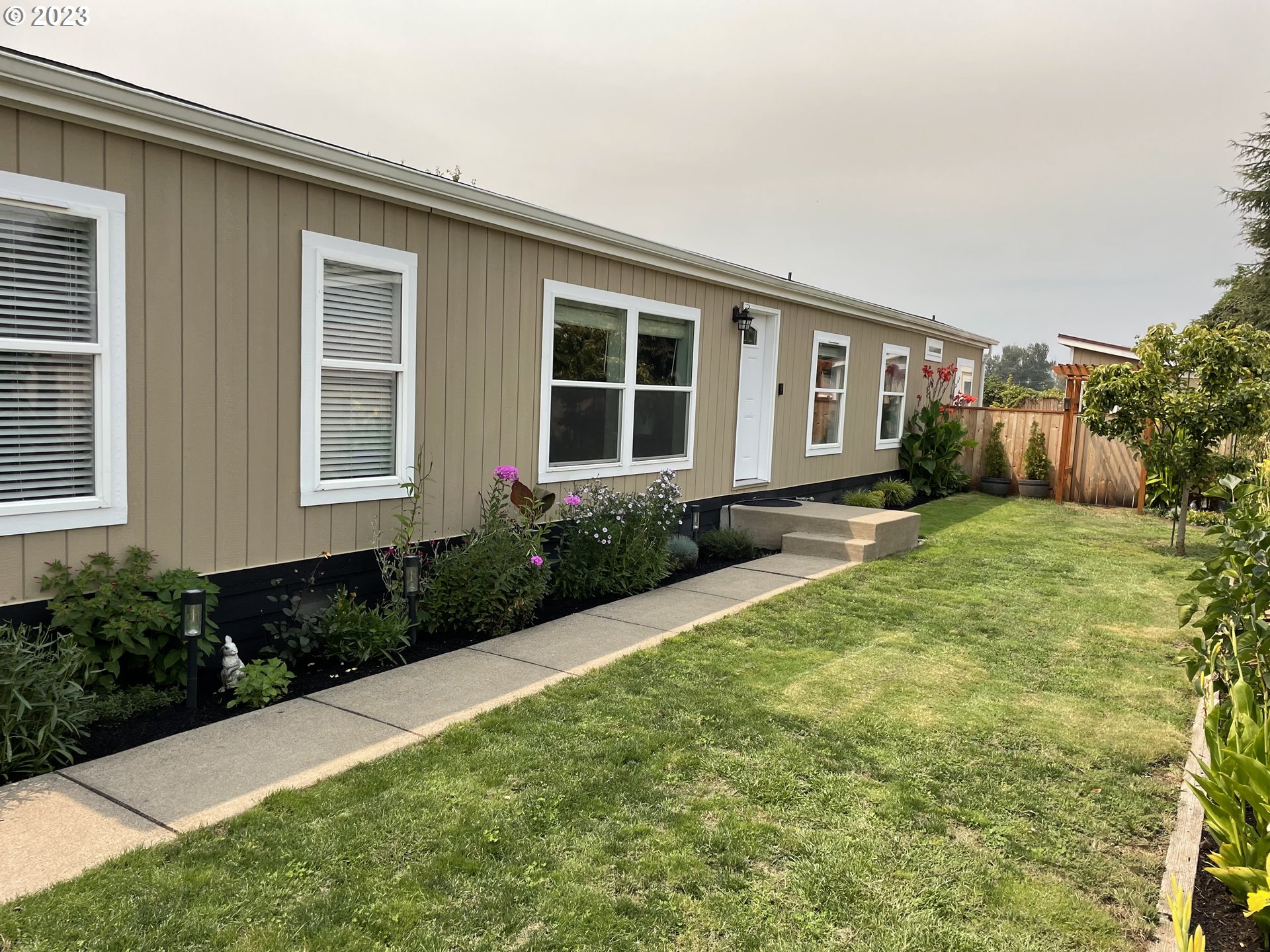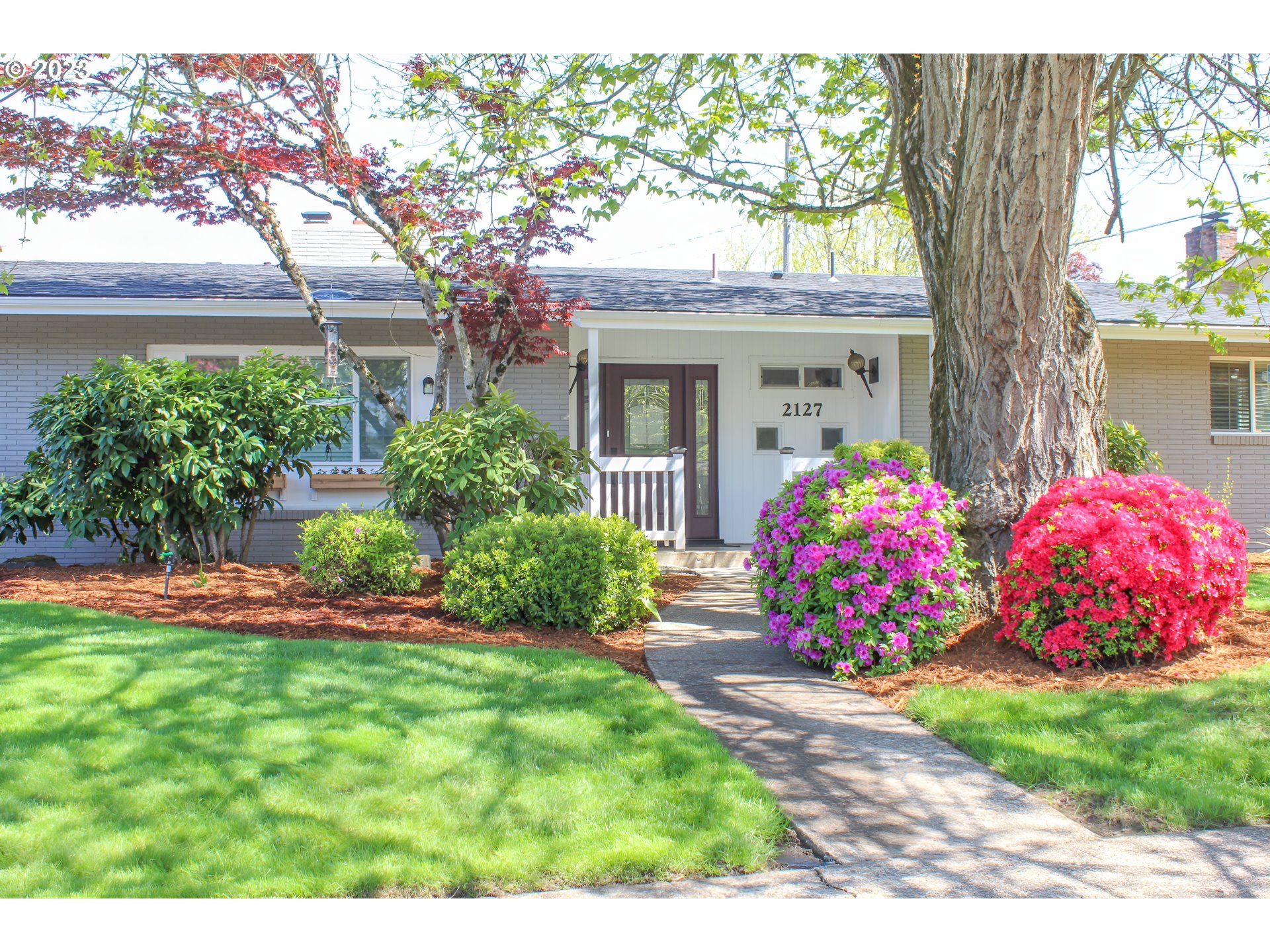The Lack Of Inventory Continues To Make Home Buying Very Competitive
Good Monday Morning!
The Real Estate market in our local area and around the nation currently presents some challenges for homebuyers. Even with the higher mortgage interest rates, the lack of inventory of homes for sale continues to make the home buying process very competitive in many situations. Today and over the last year, I have watched far to many homebuyers make hurried and sometimes unwise decisions on a home purchase. The following article from "Realtor.com", goes over some important guidelines that will help you if you are currently in the market to purchase a home.
Real estate has always been a high-stakes game, with lots of money and hope hanging in the balance. And amid the current landscape of high interest rates, pricey listings, and a shaky economy, it’s no wonder many homebuyers are worried they might make a wrong move that could cost them dearly.
Real estate agents say homebuying anxiety has risen to a fever pitch among many of their clients—and for good reason, since today’s market is filled with new challenges and land mines that can be tough to spot.
“Real estate was not designed to move at the pace that it has for the past year,” says Eminlee Wang, a real estate agent with FlyHomes in Dallas. “I’m spending far more time than I was during the [COVID-19] pandemic educating and grounding clients on what’s happening with rates, prices, and inventory in order to calibrate expectations.”
in such a murky real estate market, it’s understandable that emotions can run amok—and might push homebuyers to make some rash decisions that they think/hope/pray might give them an edge, which, in fact, might plunge them in over their heads.
To help, we’ve highlighted some of the most common mistakes homebuyers are making these days, so you know where these pitfalls are hiding and can steer clear.
1. Trying to time the market
With real estate, as with stocks, trying to time the market is generally a losing proposition. While it might be tempting to try to wait it out and hold off for the perfect moment to buy, the reality is that conditions will never be perfect.
“The biggest mistake buyers make is not moving forward now in the hope that rates or prices will come down,” says Mason Whitehead, a Dallas-based branch manager for Churchill Mortgage. “At least in Texas, one of the states with the highest demand nationwide, that is just not happening.”
As a result, Whitehead suggests that homebuyers ask themselves “what if” questions to help in their decision-making:
- What if you buy now and prices and rates go up? You win by starting to build home equity and gaining the tax benefits that come with homeownership.
- What if you buy now and prices drop? You won’t really feel that until you sell, which in most cases might be years down the line. So, you haven’t really lost it yet.
- What if you buy now and interest rates go down? You can always refinance your mortgage when rates get low enough that it makes sense to do so.
- What if you don’t buy now and prices and rates keep going up? If that’s the case, you might be stuck renting for a lot longer than you hope.
Whitehead says that waiting is unlikely to change the fundamentals of the underlying and long-term factors of the market.
“Over time, real estate is still one of the main wealth-building drivers for Americans, so it’s an investment that is more than likely going to benefit you and your family in the long run,” says Whitehead. “Instead of continuing to pay rent and help someone else gain equity, take the opportunity to start earning it for yourself.”
2. Worrying only about your mortgage payments
With mortgage interest rates a full percentage point higher than last year, many homebuyers are sweating how much their monthly home loan bill has risen. Yet America’s mortgage obsession is leading some buyers to overlook the rest of their financial obligations.
“One of the biggest mistakes I see homebuyers making is not taking into consideration all the costs associated with getting approved for and owning a home,” says Jason Gelios, a real estate agent in Southeast Michigan and author of “Think Like a Realtor.” “Oftentimes, buyers will have an idea of their monthly payment without factoring in homeowners insurance, mortgage insurance, taxes, and any other costs associated with the home.”
Adam Littlefield, senior vice president of real estate for Investment.com, also points out that homebuyers often forget to factor in the costs of home maintenance and repairs.
“All of this can cost thousands of dollars to add on top of your mortgage payment,” warns Littlefield. “Take the time to do the research and get as detailed as possible on the full scope of what you will need to budget to realistically prepare for one of the largest investments you will make in your life.”
3. Neglecting to check your credit score
Mortgage rates are already high enough right now, but did you know that a bad credit score could make those rates go even higher?
“Having a lower credit score can lead to significantly higher interest rates [on home loans], so it’s best people start monitoring and working on improving their score as early as possible,” says Jill Gonzalez, an analyst for WalletHub.
Most experts recommend checking your credit rating a few times a year so you can get a sense of what kind of mortgage you might reasonably secure.
“Beware that some lenders may let you extend yourself beyond your means,” says Littlefield, who suggests you can save yourself stress by sticking to the 28/36 rule.
“This rule states that your total housing costs should not exceed 28% of your gross monthly income and your total debt payments should not exceed 36%. Staying within those parameters will make the homebuying process seamless,” he adds.
4. Buying a home too fast or sight unseen
Since the market has been recently moving at a rapid-fire pace, many people might think they have to make decisions in an instant or else the property will get snapped up by someone else. While this might have been somewhat true a year ago, the pace of sales has generally slowed significantly since then.
Today, in most markets, buyers can take a bit more time—and should—to ensure they’re certain they want to move ahead.
Many buyers today might feel so rushed, they might consider buying a home sight unseen. Yet many experts say this is a risky prospect that is no longer as necessary as it was during the pandemic.
“These motivated buyers will base this decision on images or digital assets online, and this is a huge mistake,” says Littlefield. “You cannot smell a house in a photo, you cannot visit a neighborhood or discuss its attributes with neighbors, and you cannot hear the outside—airplanes, trains, factories, or the pig farm a mile away.”
He suggests doing everything you can to visit and experience the home yourself before you make an offer.
5. Falling in love with a house you can’t afford
With interest rates heading higher and the market being tight, it’s become increasingly common for homebuyers to get emotionally attached to a particular listing that they just can’t afford.
Mike Hardy, a California-based managing partner at Churchill Mortgage, says his company has had an abnormal number of requests for “rescue operations” from potential homebuyers who’ve gone into escrow with other lenders that didn’t structure the loan properly. Trying to salvage a deal is more stressful than staying within budget from the start.
“I absolutely recommend someone get clear on the math before getting emotions involved,” says Hardy. “A lot of people spin their wheels getting excited and putting an agent to work, only then to discover a home was out of their budget from the get-go.”
It’s crucial for homebuyers to know what their range of affordability is, according to Gonzalez. Otherwise, any small change in the market can lead to their having unsustainable debt, or even not being able to close on the loan in the first place.
A good way to avoid this is by using a mortgage calculator, which will help people make sure homebuyers don’t go over their budget.
“Fall in love with the numbers before you fall in love with the house,” says Hardy.
6. Not securing a mortgage pre-approval
Mortgage pre-approval for homebuyers was always a smart idea, but in this ever-fluctuating market, you simply shouldn’t shop without it.
“Searching for a home without being pre-approved or underwritten causes undue stress for all parties to move forward without knowing the numbers or having certainty in purchasing power,” says Hardy.
He suggests homebuyers look for lenders who will take it even a step further and have an underwriter sign off on the loan upfront. That way, the heavy lifting on the loan is done and the homebuyer can shop for a home with the certainty and negotiating power similar to a cash buyer.
“It is crucial to be aware of what mortgage rates are doing and how that plays a part in your pre-approval,” says Gelios. “Because if rates go up, you can lose your pre-approval at the amount you were approved for.”
For example, if you are pre-approved for $250,000 and the rates drastically change, this would mean you are no longer approved for that amount, making it impossible to shop at that price range.
One option is a mortgage interest rate lock, which secures a rate, usually for 90 days. This option allows homebuyers to shop without the fear of being unable to afford the house they like because of another rate change. However, if rates dip lower, a rate lock might not serve a homebuyer as well.
Whichever route you take, just remember that getting pre-approved offers realistic boundaries of the price range in which you should be shopping.
“With the rates acting how they are in 2023, a homebuyer should be in regular touch with their lender to ensure they are still shopping for an amount that they can get financing for,” says Gelios.
7. Assuming you can’t afford a new-construction home
About 1 in 3 homes on the market today is new construction. This is going a long way toward making up for the lack of inventory. And while many homebuyers just automatically assume that a brand-new house will be beyond their means, that is just not the case today.
In fact, according to recent data from the National Association of Home Builders, nearly one-third of builders are reducing prices and more than half are providing some type of incentive, whether it’s mortgage rate locks or buy-downs.
“New-construction homes were once thought to be too pricey, but with builders offering impactful price cuts and incentives, buyers should take another look at them,” says Adam Toth, head of business development at Opendoor. “If you need to sell your existing home before you can purchase a new one, some builders also partner with companies who make it easy to do both at the same time.”
Plus, new-construction homes tend to include lots of money-saving features like energy-efficient appliances, integrated technology systems, and solar capabilities.
8. Considering only the house, not the neighborhood
Just like no human is an island, no home is without a neighborhood.
“Considering how many people work from home following the pandemic, it’s more important than ever to make sure you are comfortable in your surroundings, and there’s really no way to measure that without spending some time in the area prior to buying a home,” says Hardy.
“Being in the wrong neighborhood doesn’t necessarily mean the property will depreciate, but if it isn’t the right fit for you, that is something you want to find out before you make a purchase of this magnitude,” he adds.
Basically, you need to do your due diligence on the neighborhood and not just the house. You can look up crime rates in an area, but Littlefield advises also checking school scores and investigating if the neighborhood is family-friendly. Also, factor in the distance from the nearest grocery store or gas station.
“Discover externalities like power lines, flight paths from the nearest airport, or if there are train tracks nearby,” says Littlefield. “Be detail-oriented on these variables and how they might affect you and your family’s daily lives, because you can feel stuck and experience remorse if you love the layout of the home you bought, but the location is disappointing.”
9. Waiving inspections or thinking ‘I can totally fix that’
Waiving a property inspection was common over the past few years, as buyers were wanting to make their offers more competitive. The risks can be substantial, however, so this is not something to forgo anymore.
In fact, most real estate experts always advise potential homebuyers to get an inspection so they can understand any property challenges and related costs.
Many homebuyers also make the mistake of thinking remodel projects are easier and cheaper than they end up being.
“Budgets can balloon once you start a project, and supplies can be hard to find—especially due to supply chain shortages and issues in a post-COVID era,” says Littlefield.
Additionally, a traditional mortgage will not fund the renovations you want to make, so keep in mind you will need access to extra cash if that’s your plan.
However, passing over homes just because they don’t look pristine and need cosmetic updates might also be a mistake with the limited inventory available currently.
“Purchasing a home that needs a little TLC gives the homeowner opportunities to create exactly what they want, while adding equity into the home,” says Toth. “If the fixer-upper requires a finished basement for your growing family, you can do minimal updates, and in a few months, you’ve already doubled your living space.”
10. Failing to suss out the seller’s motivation for listing
Many homebuyers feel like they need to get a great price or a discount and “haggle” with the seller. However, if you are in a hot market or hotter neighborhood and you find the house, you might need to come in at asking price or even above, according to Littlefield.
That being said, it is a mistake not to try to find out why the seller is selling.
“I always advise homebuyers to try to learn what the seller’s motivation is when expressing interest in a property,” says Gelios. “If we are viewing a home and there are multiple boxes already packed, that tells me the seller could be more motivated to accept a lower price because it seems they already have a place to go.”
Whether it’s a buyer’s or a seller’s market, people still need to move.
“If a home has been sitting on the market for longer than expected or there is an immediate and substantial price drop, the odds are that a seller needs to make a deal ASAP—and that’s an opportunity for a buyer to submit a lower offer,” says Toth.
After all, the worst the seller can say is no.
11. Not using an experienced real estate agent
In this crazy current real estate market, experience matters. This goes for your real estate and your mortgage agent.
“Over the past two years, we’ve seen a wave of new agents, yet many quit within the first year,” says Littlefield. “As the market continues to become more competitive, especially with the lack of supply or inventory across the nation, you will want to look for a local agent who has spent at least three to five years working in the area and who has a proven track record in offer negotiations.”
Littlefield says to remember that you are allowed to interview a handful of real estate agents to be sure you are working with a professional who will help you find the “must haves,” source those homes to view, and give you great information on the neighborhoods and areas you are interested in. Look for a pro with experience in reviewing contracts, making any amendments, and guiding buyers through any contingency or inspection period.
Another benefit is the cost: Normally, the home sellers pay the full commission for both their own agent and the buyers’ agent. This means using an experienced local real estate agent costs you nothing and includes all the expertise.
It is just as important to vet your lender as well.
Stay Healthy! Stay Safe! Remain Positive! Trust in God!
THIS WEEKS HOT HOME LISTING!

2127 Silver Lea Ct, Eugene, OR
Price: $635,000 Beds: 3 Baths: 2.5 SqFt: 2018
This single level ranch style home is located in a wonderful cul-de-sac and a short distance to the brand-new North Eugene High School. The covered front porch welcomes you to this turnkey home that has been tastefully upgraded throughout. New LED l...View this property >>
AND HERE'S YOUR MONDAY MORNING COFFEE!!








